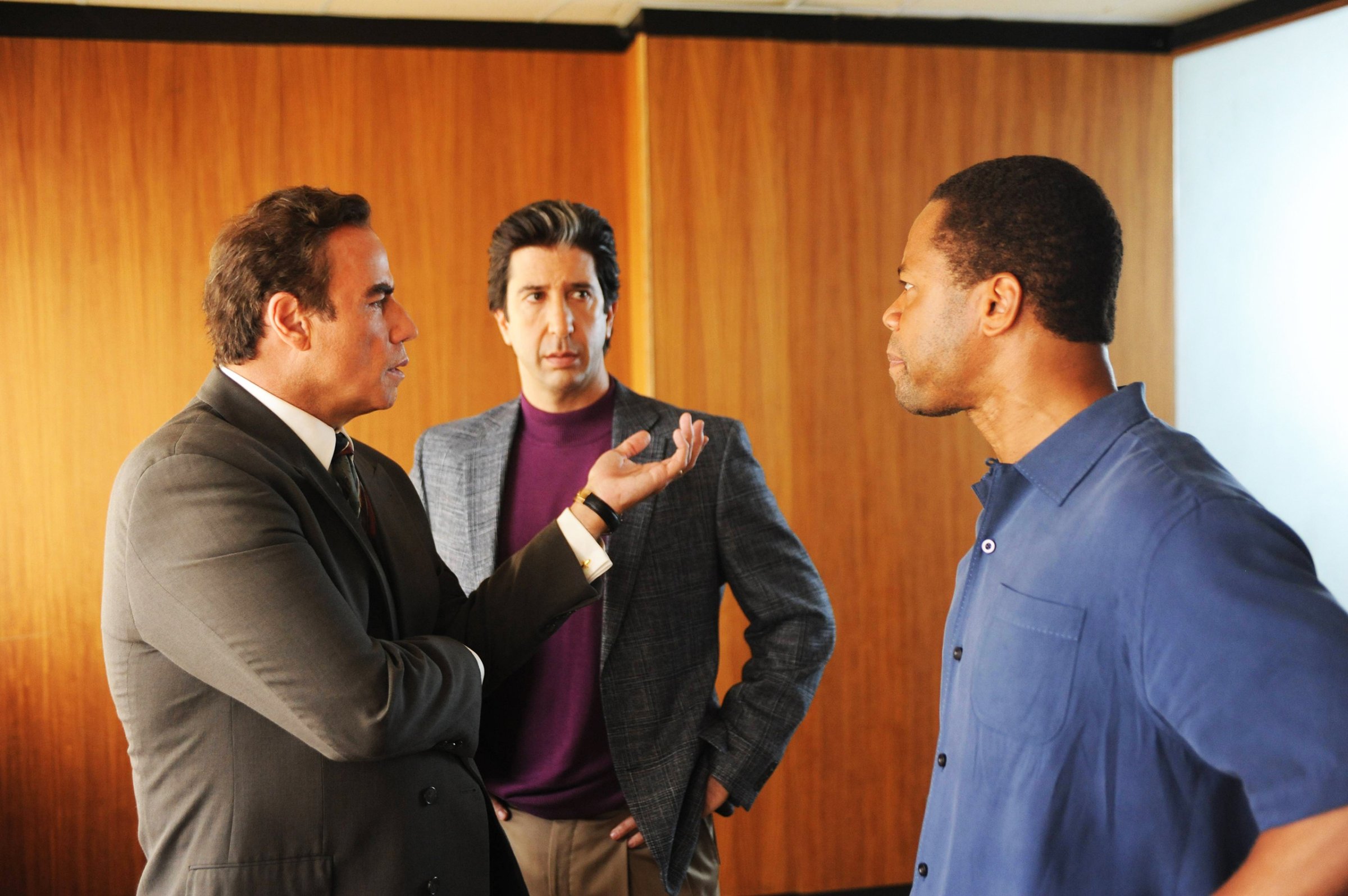
Recently, television producer Ryan Murphy phoned his agent and asked for what he now calls “the impossible project.” Murphy had just finished working on HBO’s The Normal Heart, which would eventually win the Emmy for Outstanding Television Movie, and his series Glee and American Horror Story had made him into a Hollywood power player. What Murphy’s agent sent along wasn’t impossible, exactly–if it couldn’t have been made, it wouldn’t be debuting on FX on Feb. 2–but American Crime Story: The People v. O.J. Simpson is among the trickier high-wire acts TV has seen in recent years.
The 10-episode miniseries had been brought to FX by, fittingly, The Hunger Games producer Nina Jacobson and her producing partner–it’s as close to The Hunger Games as true crime gets. The show toggles among different players in Simpson’s 1995 murder trial, on the hunt for acrimony. Defense attorney Johnnie Cochran (Courtney B. Vance) and prosecutor Christopher Darden (Sterling K. Brown) butt heads not just over Simpson’s culpability but over two very different approaches to living as black men in the professional world. Meanwhile, attorney Robert Shapiro (John Travolta) seeks to spin former football icon Simpson (Cuba Gooding Jr.) as the victim of a racist police system.
Prosecutor Marcia Clark (Sarah Paulson) lives out an antifeminist nightmare that keeps getting worse; viewers who find her abrasive may see their convictions put to the test as the media tears apart her hair, wardrobe and general mien. Faye Resnick (Connie Britton) tries to transform her connection to victim Nicole Brown Simpson into cash. And Robert Kardashian (David Schwimmer) just tries to be O.J.’s friend and teach his kids that loyalty and faith matter more than fame. That’s what being a Kardashian, he says, is all about. Surprise!
Just about the only things we don’t see (purposefully) are the bodies of Nicole and Ron Goldman–a shift for a producer whose most recent American Horror Story season starred Lady Gaga as a vampire who revels in viscera. “I was interested in making a television show about violence that really showed no violence,” Murphy says.
Indeed, as the season wears on, the viewer becomes distanced from the facts of the case, caught up in swirling meta-narratives about race, class and gender. Plainspoken about how, exactly, the case came to be litigated in the public eye, American Crime Story is mass media’s attempt to address its own excesses.
“It took me three months to decide, because I didn’t know, fully, how this material would be approached,” says Travolta, who finally agreed to return to TV for the first time since Welcome Back, Kotter ended in 1979. “I didn’t feel it deserved a spin for anything sensational or gratuitous.”
He had reason to be concerned. The Simpson saga has a vexed history with TV; the 2000 miniseries American Tragedy was criticized as exploitative, and Simpson’s If I Did It interview special in 2006 would surely have faced similar criticisms had it aired. (It was pulled after Fox affiliates protested.) Travolta, like his castmates, dove into research, including the vast amount of videotape available courtesy of a ruling by Judge Lance Ito, played in the series by Kenneth Choi. “There’s a lot of feelings I have about Shapiro at the end of the day,” Travolta says, “but it’s not a judgment.”
He may be the only one not judging. The trial has had a long tail in culture: just this year, the first season of the Netflix comedy series Unbreakable Kimmy Schmidt featured Tina Fey as a doltish, incompetent Marcia Clark, while in 2010 Faye Resnick, appearing on The Real Housewives of Beverly Hills, was denounced by a castmate as “morally corrupt.”
And the show is airing at a moment when the Black Lives Matter movement has turned racial biases in urban policing from a lawyer’s theory into daily national news. There hasn’t been a single obsessed-over “trial of the century” recently, but there have been several that have catalyzed reactions along racial lines, making American Crime Story into something far more potent than celebrity nostalgia.
The show takes no stance on whether Simpson should have been convicted, but he’s animated by something other than the cold-bloodedness his critics imagine. Perhaps the series’ most intense moment is its depiction of the famous Bronco chase, during which Gooding shows Simpson howling with pain. Here, he’s acting out of grief for both his wife and his own self-image, just as Clark, Shapiro, Cochran and the rest bring their private struggles to bear on the ultimate public spectacle.
Recently, Murphy went out to dinner with Clark, whom he described as “very wounded” over the way she’d been covered in a media circus she wasn’t prepared for. Murphy says he told the prosecutor,”I think you will find this to be very fair and balanced–you may not like all of it, but it all happened and it’s all true.” That approach, perhaps, provides American Crime Story’s greatest shock value.
More Must-Reads from TIME
- Donald Trump Is TIME's 2024 Person of the Year
- Why We Chose Trump as Person of the Year
- Is Intermittent Fasting Good or Bad for You?
- The 100 Must-Read Books of 2024
- The 20 Best Christmas TV Episodes
- Column: If Optimism Feels Ridiculous Now, Try Hope
- The Future of Climate Action Is Trade Policy
- Merle Bombardieri Is Helping People Make the Baby Decision
Contact us at letters@time.com